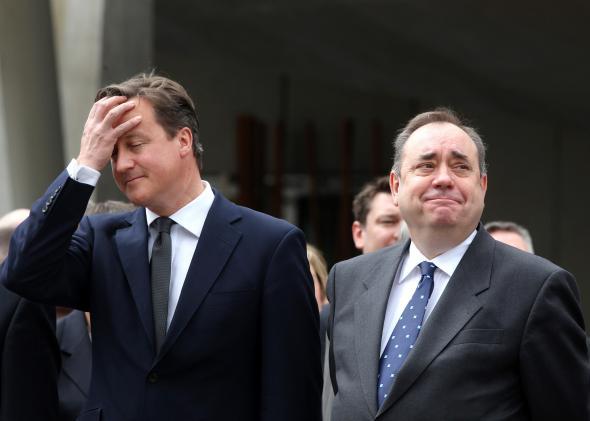The vote on Scotland’s independence turned out to be not quite as close as expected, with the BBC reporting that the “margin of victory for the Better Together campaign—55 percent to 45 percent—was greater by about 3 percent than that anticipated by the final opinion polls.” That margin was a lot closer, though, than most would have predicted a year ago.
There’s going to be a lot of commentary in the days to come about how, despite the result, things have changed forever in the United Kingdom. But while there will be ongoing debate about devolving more powers to the Scottish parliament, I suspect British politics will return to normal fairly quickly. Some have also predicted that the independence movement isn’t quite done yet, and that there’s potential for a Quebec-style “neverendum” in which independence becomes a perennial debate. But with the aftermath of the euro crisis and an unpopular Conservative government in power in London, this was probably the best opportunity available for Alex Salmond’s Scottish National Party. The independence advocates took their best shot, missed, and probably won’t get another one as good for a while.
What does this mean internationally? For one thing, this New York Times column from a few days ago listing Scotland’s referendum along with ISIS, Ukraine, and Ebola as a sign of the “great unraveling” sweeping the globe seems a little overwrought in retrospect.
Just as I was skeptical that that the Scottish precedent would set off a new springtime of nationalism, I don’t think the referendum’s defeat is going to convince separatists in Catalonia or Xinjiang to hang up their banners.
It was true yesterday and it remains true today that the international political system remains hostile to even the most peaceful and orderly independence movements, as evidenced by the negative reactions to the Scottish referendum from institutions like the IMF and EU as well as foreign leaders from Tony Abbott to Barack Obama.
The creation of new nations has been rare since the end of the Cold War. The creation of new nations by peaceful democratic means has always been rare. So, for the time being, we’re stuck with the world map we’ve got. And in the rare cases when borders do change, it’s likely to be men with guns, not voters, drawing the new ones.
